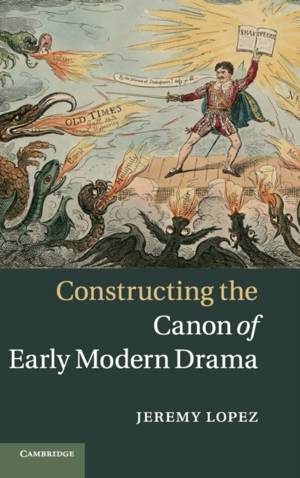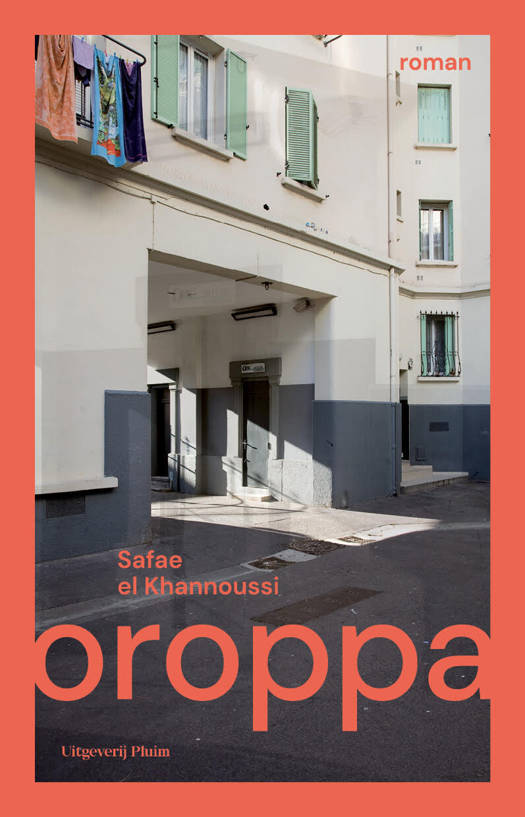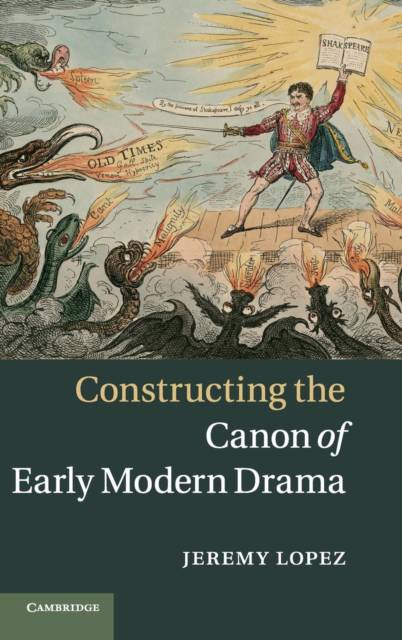
- Afhalen na 1 uur in een winkel met voorraad
- Gratis thuislevering in België vanaf € 30
- Ruim aanbod met 7 miljoen producten
- Afhalen na 1 uur in een winkel met voorraad
- Gratis thuislevering in België vanaf € 30
- Ruim aanbod met 7 miljoen producten
Zoeken
€ 191,95
+ 383 punten
Uitvoering
Omschrijving
For one hundred years the drama of Shakespeare's contemporaries has been consistently represented in anthologies, edited texts, and the critical tradition by a familiar group of about two dozen plays running from Kyd's Spanish Tragedy to Ford's 'Tis Pity She's a Whore by way of Dekker, Jonson, Middleton, and Webster. How was this canon created, and what ideological and institutional functions does it serve? What preceded it, and is it possible for it to become something else? Jeremy Lopez takes up these questions by tracing a history of anthologies of "non-Shakespearean" drama from Robert Dodsley's Select Collection of Old Plays (1744) through those recently published by Blackwell, Norton, and Routledge. Innovatively structured so as to both dramatize and critique conventions of anthologization and canonization, this book also presents provocative new readings of non-canonical plays in order to develop an argument about the mutually constitutive relationship between history and dramatic form.
Specificaties
Betrokkenen
- Auteur(s):
- Uitgeverij:
Inhoud
- Aantal bladzijden:
- 244
- Taal:
- Engels
Eigenschappen
- Productcode (EAN):
- 9781107030572
- Verschijningsdatum:
- 24/03/2014
- Uitvoering:
- Hardcover
- Formaat:
- Genaaid
- Afmetingen:
- 155 mm x 231 mm
- Gewicht:
- 453 g

Alleen bij Standaard Boekhandel
+ 383 punten op je klantenkaart van Standaard Boekhandel
Beoordelingen
We publiceren alleen reviews die voldoen aan de voorwaarden voor reviews. Bekijk onze voorwaarden voor reviews.











